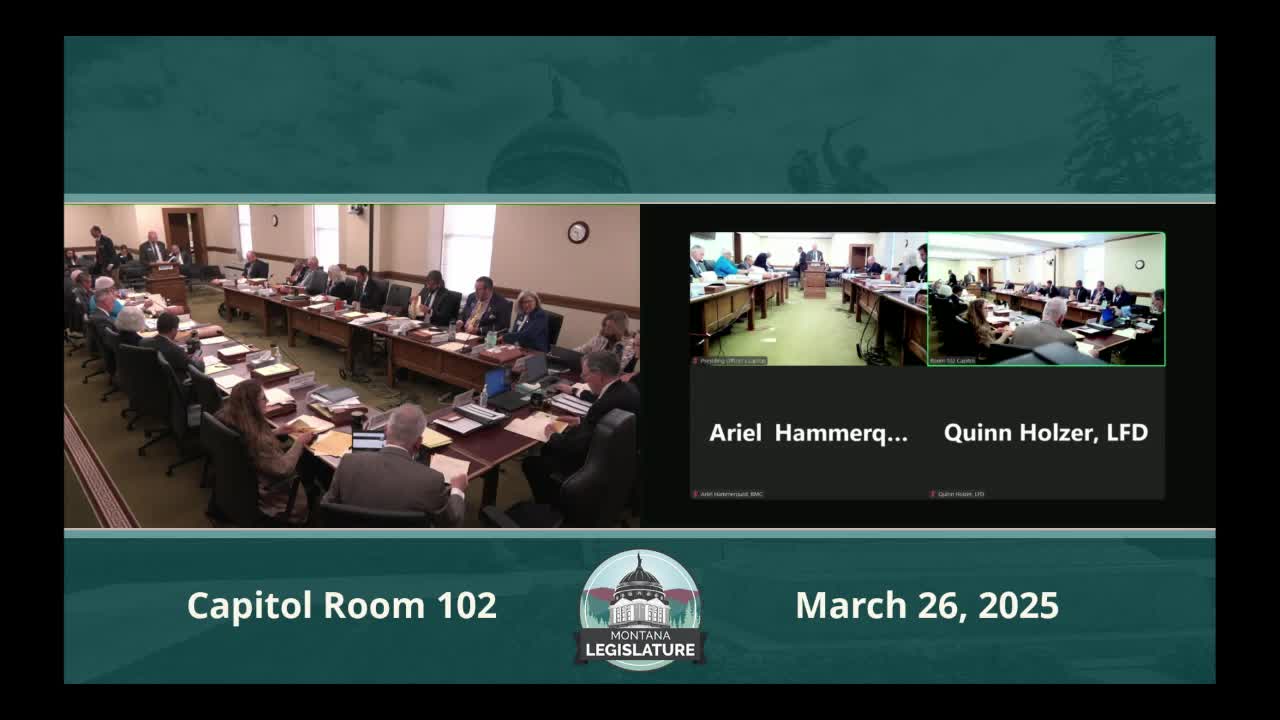Appropriations hears bill to remove $100,000 premium tax cap for series captive insurers
Get AI-powered insights, summaries, and transcripts
Subscribe
Summary
Senate Bill 60 would remove a $100,000 cap on premium tax for series business unit captive insurers; state official and industry witnesses told the committee the change is intended to equalize tax treatment and could raise premium tax revenues as the captive sector grows.
Senator Noland introduced Senate Bill 60 and its fiscal implications to the Appropriations Committee, saying the bill would remove the statutory $100,000 premium tax cap that currently applies to series business unit captive insurance companies for tax years beginning after Dec. 31, 2025.
Frank Cote, representing the commissioner of securities and insurance, testified as a proponent. Cote explained the captive structures at a high level and why the change would increase premium-tax receipts: in 2019 the legislature removed a cap for protective cell captives but left a cap in place for series business unit captives, creating what witnesses described as inequitable tax treatment. “A captive insurance company is essentially a wholly owned subsidiary insurer that is formed to provide risk mitigation services for its parent company,” Cote said, explaining why the series and protective‑cell forms are similar in function.
Cote and other supporters told the committee that only one Montana series business unit captive currently sits at the cap, and the captive association supports removing the limit. They said the captive at the cap insures multifamily properties and that the market for that coverage is growing, which would increase premium-tax receipts if the cap were removed.
Committee members sought clarity on consumer impact and liability. Cote said the change would not directly affect Montana consumers’ everyday insurance markets, and described the role of these captives as entities that self-insure or provide coverage for affiliated commercial risk. He said that the series-business-unit form can provide liability coverage and that removing the cap does not change the basic risk-transfer purpose of captives.
Senator Noland closed the hearing by urging support for the bill. No committee vote was recorded in the hearing record.
Ending: The SB 60 hearing closed with proponent testimony and questions; the transcript records no committee vote.
